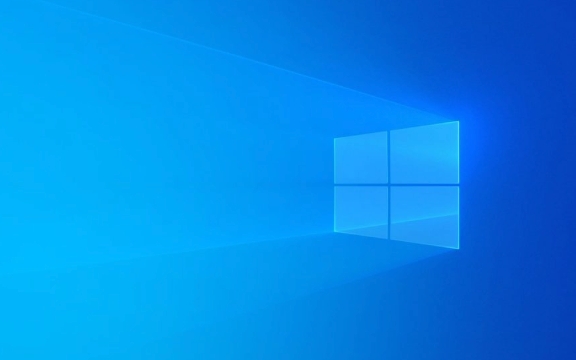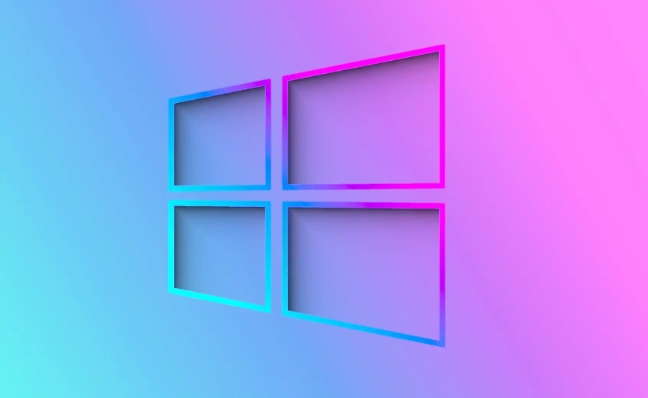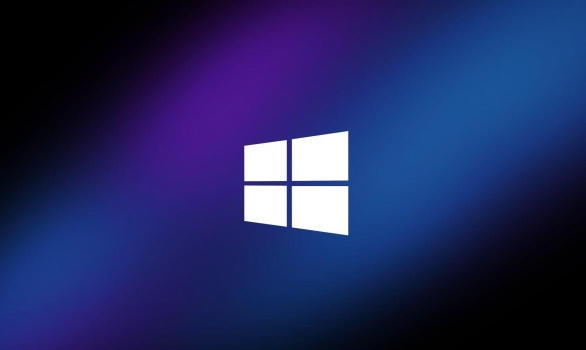What Causes a Computer to Overheat and How to Fix It
Jul 26, 2025 am 09:21 AMDust buildup blocks airflow and insulates components—clean internals every 3–6 months using compressed air. 2. Failing or slow fans reduce heat dissipation—monitor fan operation and replace faulty ones. 3. Dried-out thermal paste decreases heat transfer—replace it every 1–3 years with a pea-sized drop of high-quality paste. 4. Poor airflow due to cluttered cables or bad case design restricts cooling—optimize fan placement and cable management. 5. Overclocking or heavy workloads increase heat output—reduce clock speeds or upgrade cooling solutions. 6. Laptops overheat due to compact design—use on hard surfaces, elevate for airflow, and consider a cooling pad. Regular maintenance and proper ventilation prevent most overheating issues, ensuring stable performance and hardware longevity.

A computer overheating is a common issue that can lead to poor performance, unexpected shutdowns, or even permanent hardware damage. The main cause is usually inadequate heat dissipation, but several factors contribute. Here’s a breakdown of the most common causes and how to fix them.

1. Dust Buildup in Vents and Fans
Over time, dust accumulates inside your computer—especially around fans, heat sinks, and air vents. This buildup acts like insulation, trapping heat and blocking airflow.
How to fix it:

- Power off and unplug your computer.
- Open the case (for desktops) or access panels (for some laptops).
- Use compressed air to gently blow out dust from fans, vents, and heatsinks.
- Focus on the CPU fan, GPU fan, and power supply fan.
- Do this every 3–6 months, depending on your environment.
Tip: Avoid using vacuum cleaners—they can create static and damage components.
2. Failing or Slow Fans
Fans are essential for moving hot air out. If a fan is broken, clogged, or spinning too slowly, heat builds up quickly.

How to fix it:
- Listen for unusual noises (grinding, clicking) or silence where a fan should be running.
- Check fan speeds in your BIOS or using tools like HWMonitor or SpeedFan.
- Replace any faulty fans. Most case, CPU, and GPU fans are replaceable.
- For laptops, fan replacement is trickier but possible with the right tools and guides.
3. Dried-Out or Poor-Quality Thermal Paste
Thermal paste helps transfer heat from the CPU/GPU to the heatsink. Over time (1–3 years), it dries out and becomes less effective.
How to fix it:
- Shut down and open your computer.
- Remove the heatsink from the CPU (or GPU).
- Clean off the old thermal paste with isopropyl alcohol and a lint-free cloth.
- Apply a pea-sized drop of high-quality thermal paste.
- Reattach the heatsink and test temperatures.
Note: Don’t use too much paste—excess can insulate rather than conduct heat.
4. Poor Airflow or Bad Case Design
Even with clean components, poor internal layout or a cramped case can restrict airflow.
How to fix it:
- Make sure cables are neatly tied and not blocking fans or vents.
- Position intake and exhaust fans correctly (front/sides = intake, rear/top = exhaust).
- Avoid placing the computer in enclosed spaces like cabinets.
- Consider upgrading to a case with better airflow and more fan options.
5. Overclocking or Heavy Workloads
Pushing your CPU or GPU beyond factory settings generates more heat. Even normal heavy use (gaming, video editing) can strain cooling systems.
How to fix it:
- Stop overclocking or reduce clock speeds if overheating occurs.
- Monitor temps using software like Core Temp, MSI Afterburner, or Open Hardware Monitor.
- Take breaks during long tasks to let the system cool.
- Consider upgrading to a better cooler (especially for CPUs).
6. Laptop-Specific Issues
Laptops are more prone to overheating due to compact designs and weaker cooling.
Common fixes:
- Use your laptop on a hard, flat surface—not on a bed or pillow.
- Elevate the back with a stand or book to improve airflow.
- Use a cooling pad with built-in fans.
- Avoid blocking the bottom or side vents.
Basically, overheating comes down to heat being generated faster than it can be removed. Regular maintenance, proper airflow, and functional cooling components go a long way. Most issues are preventable or easy to fix with a little care.
The above is the detailed content of What Causes a Computer to Overheat and How to Fix It. For more information, please follow other related articles on the PHP Chinese website!

Hot AI Tools

Undress AI Tool
Undress images for free

Undresser.AI Undress
AI-powered app for creating realistic nude photos

AI Clothes Remover
Online AI tool for removing clothes from photos.

Clothoff.io
AI clothes remover

Video Face Swap
Swap faces in any video effortlessly with our completely free AI face swap tool!

Hot Article

Hot Tools

Notepad++7.3.1
Easy-to-use and free code editor

SublimeText3 Chinese version
Chinese version, very easy to use

Zend Studio 13.0.1
Powerful PHP integrated development environment

Dreamweaver CS6
Visual web development tools

SublimeText3 Mac version
God-level code editing software (SublimeText3)
 The computer keyboard cannot input, how to restore it to normal?
Dec 30, 2023 pm 06:49 PM
The computer keyboard cannot input, how to restore it to normal?
Dec 30, 2023 pm 06:49 PM
When operating a computer on a daily basis, you may sometimes encounter a situation where the keyboard suddenly loses its response. The reasons for this phenomenon may be various. Next, we will explain in detail how to effectively restore the function of outputting text in response to such sudden failures. . If the computer keyboard cannot type, which key to press to recover method 1. If the laptop keyboard cannot type, it may be because the computer keyboard is locked. Press the "FN" + "F8" keys on the keyboard to unlock it. Method 2: 1. Check whether there is any problem with the "connection" of the keyboard. 2. Then you can check the keyboard driver, right-click "This PC" on the desktop, and select "Manage". 3. On the page that opens, click "Device Manager" on the left, and then click "Keyboard" on the right. 4. Right-click the keyboard driver and select "Update Driver"
 What to do if the Win11 touchpad doesn't work
Jun 29, 2023 pm 01:54 PM
What to do if the Win11 touchpad doesn't work
Jun 29, 2023 pm 01:54 PM
What should I do if the Win11 touchpad doesn’t work? The trackpad is an input device widely used on laptop computers and can be regarded as a mouse replacement. Recently, some Win11 users reported that the touchpad on their computers cannot be used. What is going on? How to solve it? Let’s take a look at the steps to solve the problem of Win11 touchpad failure. Steps to solve Win11 touchpad malfunction 1. Make sure the touchpad on your Asus laptop is enabled. Press Windows+I to launch the Settings application, and then select Bluetooth and Devices from the tabs listed in the left navigation pane. Next, click on the Touchpad entry here. Now, make sure the touchpad toggle is enabled, if not, click on toggle
 How to solve the problem that the application cannot start normally 0xc000005
Feb 22, 2024 am 11:54 AM
How to solve the problem that the application cannot start normally 0xc000005
Feb 22, 2024 am 11:54 AM
Application cannot start normally. How to solve 0xc000005. With the development of technology, we increasingly rely on various applications to complete work and entertainment in our daily lives. However, sometimes we encounter some problems, such as the application failing to start properly and error code 0xc000005 appearing. This is a common problem that can cause the application to not run or crash during runtime. In this article, I will introduce you to some common solutions. First, we need to understand what this error code means. error code
 Solution to unable to print after printer sharing
Feb 23, 2024 pm 08:09 PM
Solution to unable to print after printer sharing
Feb 23, 2024 pm 08:09 PM
What’s wrong with shared printers not printing? In recent years, the rise of the concept of sharing economy has changed people’s lifestyles. As part of the sharing economy, shared printers provide users with more convenient and economical printing solutions. However, sometimes we encounter the problem that the shared printer does not print. So, how do we solve the problem when the shared printer does not print? First, we need to rule out the possibility of hardware failure. You can check whether the printer's power supply is connected properly and confirm that the printer is powered on. Also, check the connection between the printer and computer
 GitLab troubleshooting and recovery features and steps
Oct 27, 2023 pm 02:00 PM
GitLab troubleshooting and recovery features and steps
Oct 27, 2023 pm 02:00 PM
GitLab's troubleshooting and recovery functions and steps Introduction: In the process of software development, the version control system is one of the indispensable tools. As a popular version control system, GitLab provides rich functions and powerful performance. However, GitLab can experience glitches for various reasons. In order to keep the team working properly, we need to learn how to troubleshoot and restore the system. This article will introduce the specific steps of GitLab troubleshooting and failure recovery functions, and provide corresponding code examples. one
 The screen turns black after updating win10 system
Jan 05, 2024 pm 11:32 PM
The screen turns black after updating win10 system
Jan 05, 2024 pm 11:32 PM
Generally speaking, there will be no problems after the win10 system is updated! But among so many win10 system users, there are always some exceptions! Recently, many friends have reported that their win10 system computers have a black screen problem after updating! Today, the editor will bring you the solution to the problem of black screen and unresponsiveness after win10 update. Let’s take a look at it together. Solution to the black screen after win10 system update: Operation steps: 1. Restart the computer and enter the BIOS; Enter the BIOS method: After restarting the computer, continuously press the "Del" key in the lower right corner of the keyboard to enter. Generally, the "F2" key is used in notebooks. (If the F2 key cannot be entered, you can consult the manufacturer on how to enter the BIOS). After entering the BIOS, normally
 Debugging and Troubleshooting Techniques in C++ Multithreaded Programming
Jun 03, 2024 pm 01:35 PM
Debugging and Troubleshooting Techniques in C++ Multithreaded Programming
Jun 03, 2024 pm 01:35 PM
Debugging techniques for C++ multi-threaded programming include using a data race analyzer to detect read and write conflicts and using synchronization mechanisms (such as mutex locks) to resolve them. Use thread debugging tools to detect deadlocks and resolve them by avoiding nested locks and using deadlock detection mechanisms. Use the Data Race Analyzer to detect data races and resolve them by moving write operations into critical sections or using atomic operations. Use performance analysis tools to measure context switch frequency and resolve excessive overhead by reducing the number of threads, using thread pools, and offloading tasks.
 Python logging module knowledge points revealed: common questions all in one place
Mar 08, 2024 am 08:00 AM
Python logging module knowledge points revealed: common questions all in one place
Mar 08, 2024 am 08:00 AM
Python logging module basics The basic principle of the logging module is to create a logger (logger) and then record messages by calling the logger method. A logger has a level that determines which messages will be logged. The logging module defines several predefined levels, including DEBUG, INFO, WARNING, ERROR, and CRITICAL. importlogging#Create a logger named "my_logger" and set its level to INFOlogger=logging.getLogger("my_logger")logger.setLevel(log






